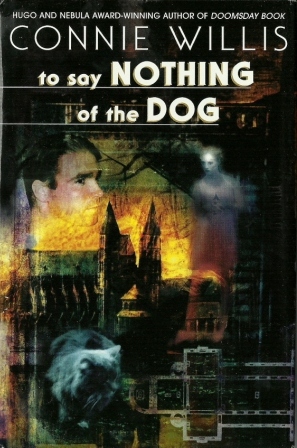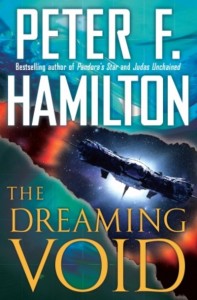 Tonight we dined out at a place we’ve come to love up in Savannah, called Cha-Bella. We drove up with our neighbors, Ron and Jannette, stopping for cocktails first at the cellar tavern at The Olde Pink House, some blocks away.
Tonight we dined out at a place we’ve come to love up in Savannah, called Cha-Bella. We drove up with our neighbors, Ron and Jannette, stopping for cocktails first at the cellar tavern at The Olde Pink House, some blocks away.
The tavern was dark and comforting, with a welcoming gas log and deep leather chairs. Ann’s Long Island Iced Tea, and our friend’s martinis were well-constructed, and my Walker Red was a generous pour. Serendipitously, we kept meeting people whose life tapestries bore similar threads to our own, and the conversations flowed easily until it was time to walk over to Cha-Bella.
Walking across the squares of Savannah on a Saturday night is always pleasant, the city being full of students and their limitless energy. We passed some SCAD photography students lying across the sidewalk on their bellies shooting film for some project as if it was as normal as strolling.
Cha-Bella was warm and softly lit as we arrived.
For dinner we ordered the grouper special served with avocado slices over risotto, a plate of yellow-fin tuna, chicken breast braised in olive oil, and a breaded pork cutlet. I, myself, had a chance to sample both fish platters, and found myself wishing I had ordered the tuna, not that the grouper was lacking in merit. The darker flavors of the tuna were simply a better match for the Merlot accompanying the meal.
The meal was splendid, as was the company. Our conversations ranged from easy journeys and pleasant vacations to dead-stick landings and storms at sea, and from raising babies to the joys of the empty nest.
I hope we dine so well again soon!
— Elliott
 ‘To Say Nothing of the Dog’ , as I came to read it in its entirety, is an interesting story, for I had started it once some years ago, and failed to progress in my reading of it. The failure, time has shown me, was entirely my own. For whatever reason, the distractions in my life prevented me from realizing what a jewel of a story Ms. Willis had crafted. I simply didn’t know what it was I had in my hands, and so never got beyond the first chapter. It worked something like this: this is supposed to be a time traveler’s story, and here’s this odd crew of weird academics picking over the wreckage of the cathedral at Coventry after having been firebombed by the Nazi’s in WWII. Their incompetence is exceeded only by their fatigue. Their quest is to find a missing piece of Victorian bric-a-braq called “The Bishop’s Bird Stump”, and this at the behest of a tyrant-boss who needs to copy it to decorate a modern knock-off cathedral being built in the mid-21st century. Somehow, this wasn’t the time-travel yarn I was looking for at that time.
‘To Say Nothing of the Dog’ , as I came to read it in its entirety, is an interesting story, for I had started it once some years ago, and failed to progress in my reading of it. The failure, time has shown me, was entirely my own. For whatever reason, the distractions in my life prevented me from realizing what a jewel of a story Ms. Willis had crafted. I simply didn’t know what it was I had in my hands, and so never got beyond the first chapter. It worked something like this: this is supposed to be a time traveler’s story, and here’s this odd crew of weird academics picking over the wreckage of the cathedral at Coventry after having been firebombed by the Nazi’s in WWII. Their incompetence is exceeded only by their fatigue. Their quest is to find a missing piece of Victorian bric-a-braq called “The Bishop’s Bird Stump”, and this at the behest of a tyrant-boss who needs to copy it to decorate a modern knock-off cathedral being built in the mid-21st century. Somehow, this wasn’t the time-travel yarn I was looking for at that time. ‘To Say Nothing of the Dog’ , as I came to read it in its entirety, is an interesting story, for I had started it once some years ago, and failed to progress in my reading of it. The failure, time has shown me, was entirely my own. For whatever reason, the distractions in my life prevented me from realizing what a jewel of a story Ms. Willis had crafted. I simply didn’t know what it was I had in my hands, and so never got beyond the first chapter. It worked something like this: this is supposed to be a time traveler’s story, and here’s this odd crew of weird academics picking over the wreckage of the cathedral at Coventry after having been firebombed by the Nazi’s in WWII. Their incompetence is exceeded only by their fatigue. Their quest is to find a missing piece of Victorian bric-a-braq called “The Bishop’s Bird Stump”, and this at the behest of a tyrant-boss who needs to copy it to decorate a modern knock-off cathedral being built in the mid-21st century. Somehow, this wasn’t the time-travel yarn I was looking for at that time.
‘To Say Nothing of the Dog’ , as I came to read it in its entirety, is an interesting story, for I had started it once some years ago, and failed to progress in my reading of it. The failure, time has shown me, was entirely my own. For whatever reason, the distractions in my life prevented me from realizing what a jewel of a story Ms. Willis had crafted. I simply didn’t know what it was I had in my hands, and so never got beyond the first chapter. It worked something like this: this is supposed to be a time traveler’s story, and here’s this odd crew of weird academics picking over the wreckage of the cathedral at Coventry after having been firebombed by the Nazi’s in WWII. Their incompetence is exceeded only by their fatigue. Their quest is to find a missing piece of Victorian bric-a-braq called “The Bishop’s Bird Stump”, and this at the behest of a tyrant-boss who needs to copy it to decorate a modern knock-off cathedral being built in the mid-21st century. Somehow, this wasn’t the time-travel yarn I was looking for at that time.
